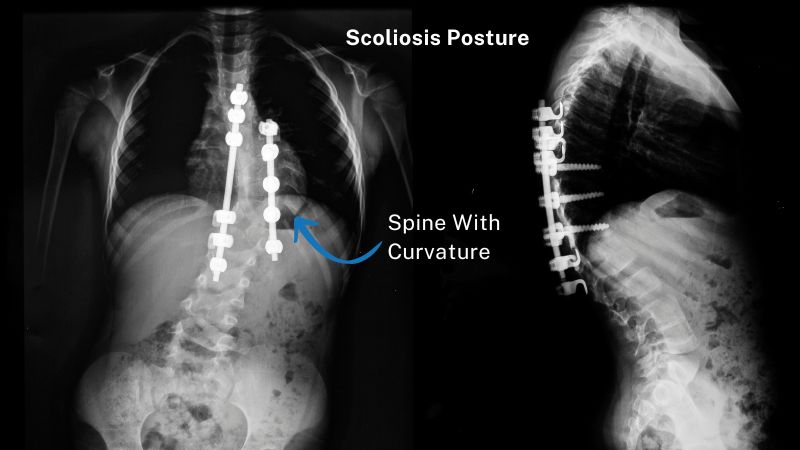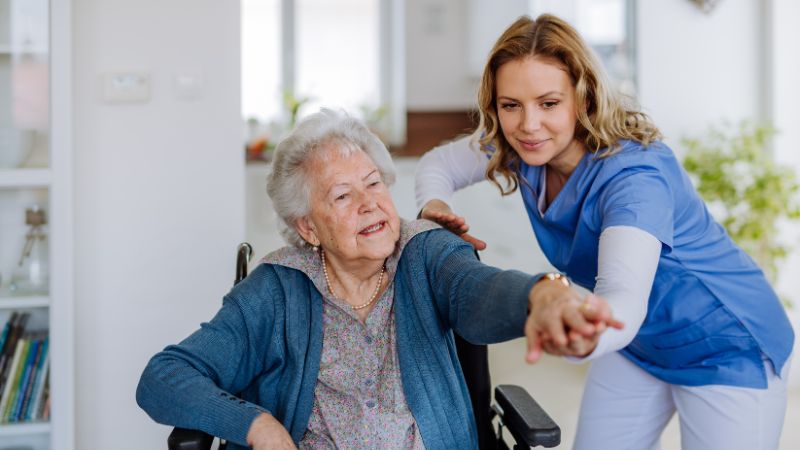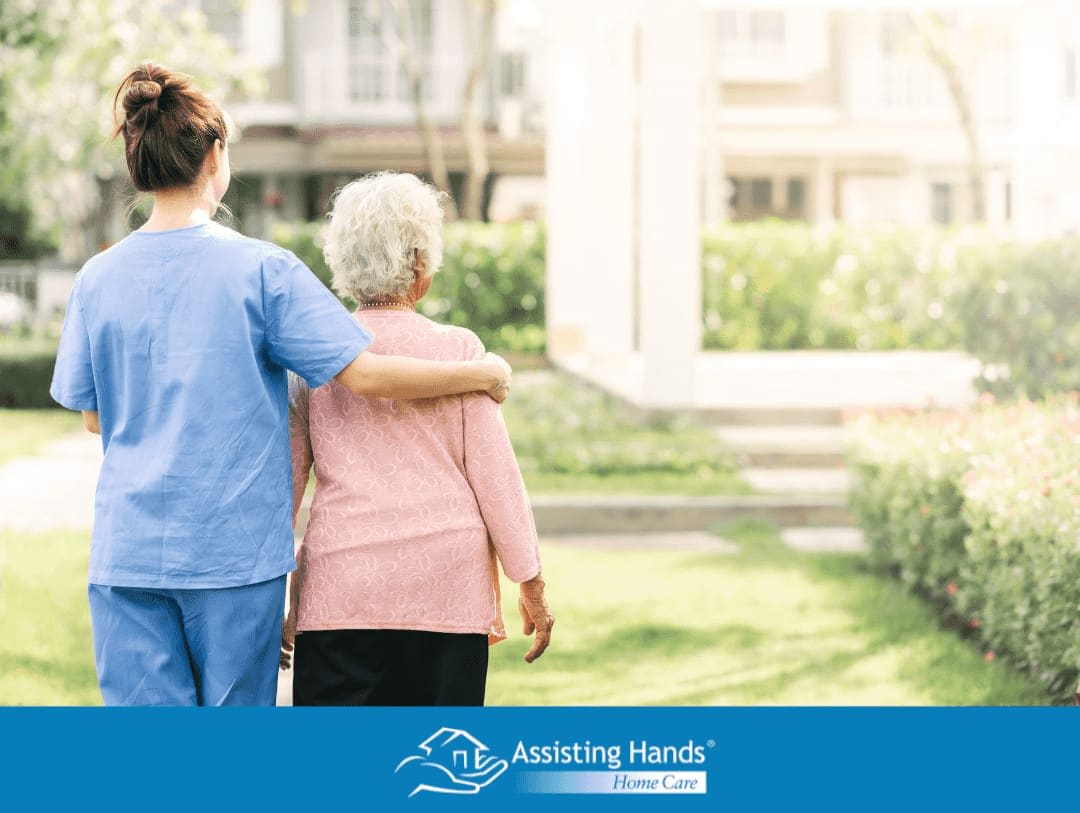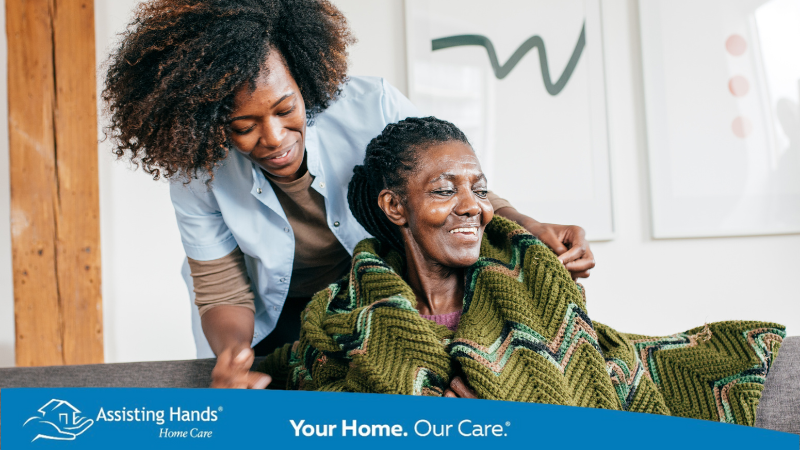
Seniors are vulnerable to developing more chronic health conditions as they age. Scoliosis is a condition that affects about 68 percent of people over the age of 60. When an elderly loved one is diagnosed with scoliosis, caregivers can help treat them and improve their quality of life.
What is Scoliosis?
Scoliosis is an unnatural lateral curvature of the spine. Older adults might have lived with a slight curvature of their spine since youth but are diagnosed when it progresses.
The condition can be present anywhere in the three parts of the spine, such as the cervical spine (neck), thoracic spine (upper back) or the lumbar spine (lower back). Although the spine is naturally curved, scoliosis causes it to curve in an abnormal C shape.

Can Osteoporosis Cause Scoliosis?
What are Symptoms of Scoliosis?
In seniors, scoliosis can present with a variety of symptoms, some of which may overlap with other age-related conditions. Here are some common symptoms of scoliosis in seniors:
- Visible spine curvature
- Uneven shoulders
- Constant low back pain
- Uneven waist
- Difficult standing and sitting
- Prominent ribs showing
- Fatigue and extreme tiredness
- Pinched nerves that can also cause pain in the legs, too.
- A visible bulge may appear at the site of the pain.
In some older adults with scoliosis, pain symptoms do not manifest at all. Less common symptoms include loss of height. If the condition causes progressive curves, such as those over 70 degrees, the lungs can be compressed and shortness of breath results. Pressure on the abdomen from progressive curves also cause the senior to feel prematurely full.
How is Scoliosis Treated in Seniors?
Scoliosis in seniors is treated via either of two means: surgical or non-surgical. Invasive spinal surgery is not prescribed in 90 percent of patients. Surgical intervention can be helpful, however, if the condition causes dysfunction due to leg and back pain.
Surgical Interventions
Spinal fusion is the most common surgery performed when seniors opt for surgical intervention. During the operation, the spine is fused to a bone graft to hold it in a straight position. Older adults have other surgical options that can help when scoliosis symptoms progress.
Decompression fusion relieves pressure once the surgeon removes nerves or tissue pressing against the spine. When scoliosis is severe, surgical stabilization can be performed to attach rods and screws to the spine, link them with rods and then follow with fusion.
If rods and screws fail, the surgeon can perform an osteotomy. During this procedure, the vertebrae is cut so the spine can be shaped into the desired position and fused. Lastly, a vertebral column resection involves realignment of the spine after removing sections of vertebrae.
Non-Surgical Interventions
Aging adults living with scoliosis have other non-surgical treatment options available to them, such as acupuncture, chiropractic care, massage therapy, and yoga. Seniors with scoliosis are advised to make ergonomic modifications and perform exercises to strengthen their back and abdominal muscles.
Seniors can find relief from scoliosis symptoms by combining non-surgical interventions. For instance, elderly patients might combine the Schroth method with other treatments, such as bracing or physical therapy, to optimize the health benefits. Also make it a habit to maintain good posture to feel better.
Anti-inflammatory Drugs
Spinal surgery carries a high complication rate, prompting most scoliosis patients to consider non-surgical treatments. Non-operative measures can provide significant pain relief and improve mobility. Seniors may be prescribed NSAIDs (nonsteroidal anti-inflammatory drugs) to manage pain.
Steroid injections may be beneficial for relief from nerve pain. The steroid is injected into the facet joints, the areas where the vertebrae meet along the various levels of the spine. Steroids may alternately be given as an epidural, whereby the drug is delivered directly to the nerve root.
Bracing
Bracing is another conservative treatment for seniors with larger curvatures. When worn consistently, a brace reduces the progression of the spinal curve and promotes spinal alignment. Bracing is effective in preventing a worsening of the curve and maintaining overall spinal health.
Physical Therapy
Scoliosis patients opt for physical therapy to improve their strength, range of motion, and flexibility. Physical therapy programs focus on stretches and exercises tailored to the individual’s degree of curve. Therapy alleviates back pain, improves spinal stability, and enhances the senior’s functioning overall.

Schroth Method
Another conservative treatment consists of exercises focused on stabilizing, elongating, and de-rotating the spine. The Schroth method, as this treatment is known, is designed to alleviate pain and enhance spinal stability, with the goal to improve the aging patient’s overall ability to function.
The specialized scoliosis treatment utilizes a three-dimensional approach that helps to improve posture, spinal alignment, and pelvic position. The Schroth method is tailored to meet the health care needs of each patient, thereby making it a suitable treatment choice for seniors.
Best Food Options To Eat For Seniors Having Scoliosis
A well-balanced diet is essential for maintaining spinal health and overall well-being. Foods rich in calcium and vitamin D are vital for bone strength, helping to prevent further spinal deformities. Magnesium and protein are important for muscle function and bone health, while omega-3 fatty acids help reduce inflammation, which can alleviate discomfort associated with scoliosis. Here are a list of things that seniors should eat and avoid:
- Calcium-rich foods like milk, kale, spinach, and fortified plant-based milks (e.g., almond milk) and orange juice.
- Vitamin D sources like fish, eggs, salmon, and cereal.
- Magnesium-containing items like almonds, sunflower seeds, black beans, and quinoa.
- Protein-rich foods like chicken, turkey, lentils, and tofu.
- A good intake of water for hydration, aiming for at least 8 glasses per day.
There are certain foods that seniors with scoliosis should avoid to maintain better spinal health:
- High sodium foods such as processed meats, snacks, chips
- Sugary foods and beverages
- Fried foods
- Alcohol
- Excessive Caffeine
Related Read: Dietary Guidelines For Seniors to understand what’s better for the health and reduce the risk of chronic illness.
Home Care From Assisting Hands

Older scoliosis patients benefit from the extra support provided by Assisting Hands Home Care. We deliver compassionate in-home care services to help seniors stay independent and healthy.
A senior who is enrolled in a physical therapy program may need reliable transportation to the clinic. Our professional caregivers provide safe transportation and escort to clinics and doctors’ offices. We can also drive them to senior centers and yoga classes, so they stay connected with the community.
If your aging loved one is prescribed medications for scoliosis or any other health condition, we provide timely medication reminders. Caregivers also assist with personal hygiene tasks, prepare healthy meals, shop for groceries, perform light housekeeping, and serve as friendly companions.
Reliable elder care from our nationally recognized home care agency is an invaluable resource for seniors with any health condition or ability level and should be an integral part of their care plan. Caregivers are licensed, bonded, and insured to give peace of mind to families and care recipients.
Assisting Hands Home Care provides customized care options for seniors in Palos Heights, Worth, Tinley Park, Lemont, Lockport, Orland Park and Homer Glen, Illinois. Whether post-surgical care, respite care, or companion care is needed, we are positioned to fulfill their non-medical care needs. Schedule an in-home consult today to learn the benefits of elder care. Call (773) 207-3767















